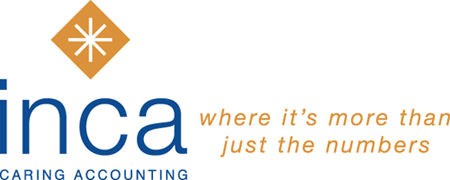It’s a vital and hard-working asset in all kinds of businesses, and it’s not an exaggeration to say that without it, the wheels of the UK economy would grind to a standstill.
We’re talking of course about the ubiquitous commercial van.
If you’re thinking of purchasing a van for your business – to have the tools of your trade wherever you’re working, to deliver products to your customers – or to perform any one of a myriad of other tasks in your business, you’ll want to be clear about the tax implications.
They fall into three key areas:

1. Acquiring your van
The first thing you’ll need to decide on is how you’re going to acquire your van, and this is likely to come down to your financial position.
Even if you have the cash available or access to finance, so that you’re able to buy a vehicle outright, you might prefer the certainty of fixed monthly outgoings and the peace of mind of inclusive maintenance that comes with most lease or rental agreements. But if you do choose to lease or rent, you’ll need to scrutinise the contract carefully and weigh up the benefits against any disadvantages such as restricted mileage and penalty clauses.
Whether you operate as a limited company or as a self-employed trader, if you do purchase your van using cash from your business or a bank loan, you’ll be able to offset the purchase price against your tax bill. And because vans qualify for Annual Investment Allowance (AIA), you’re allowed to deduct the FULL value of the vehicle from your profits before you pay tax.
Although HMRC classifies both cars and vans purchased to use and keep in a business as ‘plant and machinery’, you can only claim part of the cost of a car against your tax bill – making a van an attractive proposition.
For a business owner looking to change their vehicle and lower their tax bill, acquiring a van close to financial year-end is an excellent way to mitigate business tax – even if the cash is raised through a finance agreement.
If you choose to lease or rent your vehicle, rather than getting all your tax relief in the same year that you purchase your van, you’ll receive it spread across the whole period of your agreement.
2. Personal use & benefit in kind tax
Many van-driving business owners will want to make use of their vehicle for non-work-related journeys.
If you’re self-employed or a sole trader, you treat any personal use of your van in the same way you do for other part-business/part-personal outgoings, e.g. a car. The amount you’ll have to report on your tax return will be the total cost of all usage – less a percentage figure to account for private usage.
So far, so straightforward. But when it comes to limited companies, the way benefit in kind tax is treated in relation to personal use of a company-owned van as opposed to personal use of a company-owned car is very different.
For a car, the value of the benefit in kind is based on a combination of the value of the car when new, and its CO2 emissions. With a van, things are much simpler. Neither the original value of the vehicle nor its CO2 emissions are taken into account. Instead, two flat rates on which tax and employers NI must be paid are applied – one for vehicle usage and one for fuel.
The flat rates for the tax year 2020-21 are as follows:
- Vehicle usage – £3,490
- Fuel – £666
Add these two flat rates together, and you can see that a basic rate taxpayer would have to pay just £830 a year (20% of £4,150) to enjoy unlimited private use of a company van. With some modern vans looking and driving very much like cars (see below, What is a van?), it’s easy to see why – if it makes sense from a practical perspective, switching from a company car to a company van may well be something worth considering.
Note: You don’t have to pay any benefit in kind tax if you only use your van for ‘insignificant’ private journeys. HMRC gives the example of an insignificant journey as making a slight detour to pick up a newspaper on the way to work.
3 Value Added Tax
Whether you operate as a limited company or you’re self-employed, if you’re VAT registered you can reclaim any VAT you pay to purchase, maintain and run a company van in full. Crucially though, you cannot reclaim VAT on any costs related to your personal use of the vehicle. You must calculate and deduct any such expenditure.
What is a van?
This question isn’t quite as straightforward as it might at first seem. Manufacturers know that many business owners want a van they can use as their personal mode of transport – as well as a workhorse for their business.
If this includes you, it’s worth spending some time talking with local dealerships as you’ll find plenty of models that give cars a run for their money in terms of style, comfort and ride.
Just to clarify things, HMRC defines a van or light commercial vehicle (LCV) as:
- A vehicle primarily constructed for the conveyance of goods or burden
- A gross vehicle weight – fully laden – not exceeding 3,500kg
You can check a vehicle’s logbook if you’re unsure how it is classified. A vehicle with the classification N1 or N2 is taxed as a van, while cars are classified as M1 or M2.
Let Inca Help You Decide the Best Way to Buy a Van!
Are you considering investing in a van for your business? It’s a big decision, and the ramifications on your finances could last years. You know what kind of vehicle is best suited to your needs, but is it more tax-efficient to buy it with your own cash or borrow to fund the purchase? Would leasing or renting a vehicle make better financial sense?
We can help you decide what option is best for you. For an initial chat, call us now on 01235 868888 or email us at [email protected].
Even though lockdown restrictions are beginning to be lifted, the COVID-19 crisis continues to impact many businesses. If you’ve been affected and would like help or advice, we’re here to support you in any way we can.




